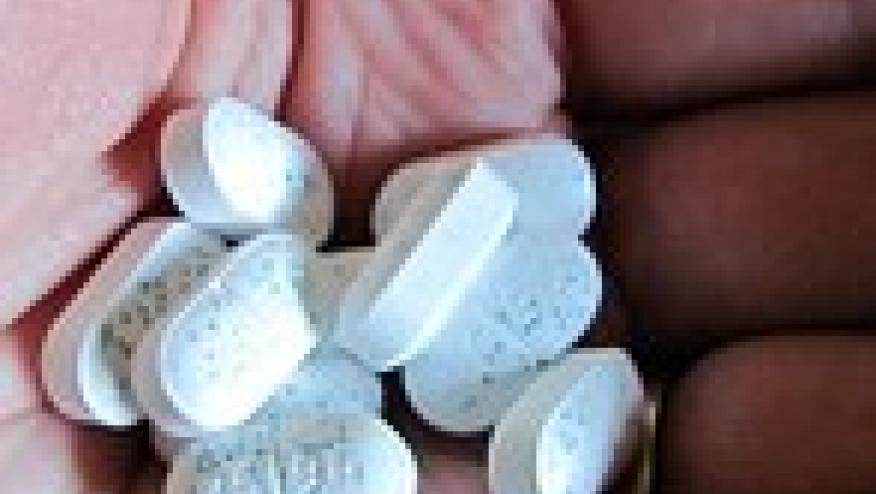Rheumatology Year in Review Save

During 2017, the improvements and refinements seen during previous years in the treatment of rheumatoid arthritis have been extending to other conditions ranging from psoriatic arthritis to lupus and for both monoclonal antibodies and oral small molecule medications.
Advances for Biologics
A study known as FUTURE 5, presented at the annual meeting of the American College of Rheumatology (ACR), evaluated the efficacy of the interleukin (IL)-17a inhibitor secukinumab (Cosentyx) in psoriatic arthritis. By week 24, 62.6% of patients receiving secukinumab, 300 mg every 4 weeks plus a loading dose, had an improvement of at least 20% on the response criteria of the ACR (ACR20) compared with 27.4% of those given placebo.
In another study presented in a late-breaking abstract session at the ACR meeting, ACR20 responses were seen in 60% of patients with psoriatic arthritis receiving the investigational selective IL-23 inhibitor risankizumab by week 16 compared with 36% of those given placebo. In addition, a 75% decrease in the Psoriasis Area and Severity Index (PASI 75) was seen in 67% to 75% of patients receiving the active treatment compared with only 10% of those given placebo.
Another trial in psoriatic arthritis evaluated the efficacy of the anti-IL-23 monoclonal antibody guselkumab on multiple disease domains. In a presentation at the annual meeting of the European League Against Rheumatism (EULAR), ACR20 responses at week 24 were achieved by 58% of patients receiving guselkumab compared with 18.4% of those receiving placebo. Moreover, 78.6% of those in the guselkumab group had PASI 75 responses, compared with 12.5% of those in the placebo group, while PASI 90 responses were seen in 66.3% versus 6.3%.
Oral Therapies
The oral JAK inhibitor tofacitinib (Xeljanz) also showed success for psoriatic arthritis in a phase III trial presented at the EULAR meeting, with efficacy similar to what has been seen for biologics. Among 422 patients, ACR20 responses were achieved at 3 months by 33% of patients randomized to placebo, in 50% of those given tofacitinib 5 mg twice daily, and in 61% of those receiving tofacitinib 10 mg twice daily -- and in 52% of those receiving the tumor necrosis factor inhibitor adalimumab (Humira) 40 mg every 2 weeks.
Tofacitinib's benefits also extended to ankylosing spondylitis. In another study presented at EULAR17, minimally clinically important changes on MRIs of the spinal and sacroiliac joints were observed at week 16 in 34.1% of patients receiving the drug compared with 11.8% of those given placebo.
Other Conditions
Treatment advances also have taken place for giant cell arteritis, systemic sclerosis, and lupus.
In a yearlong phase III trial, 56% of patients with confirmed giant cell arteritis given subcutaneous tocilizumab (Actemra) once weekly plus a 26-week prednisone taper were in sustained remission at week 52 compared with only 14% of those given placebo.
Tocilizumab also was beneficial for systemic sclerosis, showing clinically meaningful and sustained improvements in skin scores, lung function, and patient-reported outcomes at week 96 of a multinational study.
Finally, for systemic lupus erythematosus -- a potentially lethal disease for which only one new treatment has been approved in more than 50 years -- the IL-12/23 inhibitor ustekinumab (Stelara) showed promise in a phase II study presented as another late-breaker at the ACR meeting. In the study, which included patients with longstanding disease, the primary efficacy endpoint was met by 60% of the ustekinumab group compared with only 31% of the placebo group. A phase III study is planned.
Other important stories in rheumatology this year were:
- Arthritic Events Seen with Checkpoint Inhibitors
- ICER Report Claims RA Tx Is Not Cost Effective
- FDA Says 'No' to Baricitinib for Rheumatoid Arthritis
- Patients with Rheumatic Diseases Bail on Biosimilars
- Tocilizumab's Benefits Hold Up for 5 Years in JIA
- RA Drug Helps in Refractory Myositis










If you are a health practitioner, you may Login/Register to comment.
Due to the nature of these comment forums, only health practitioners are allowed to comment at this time.